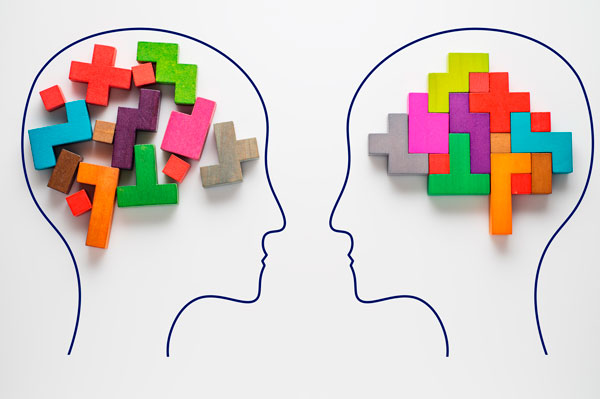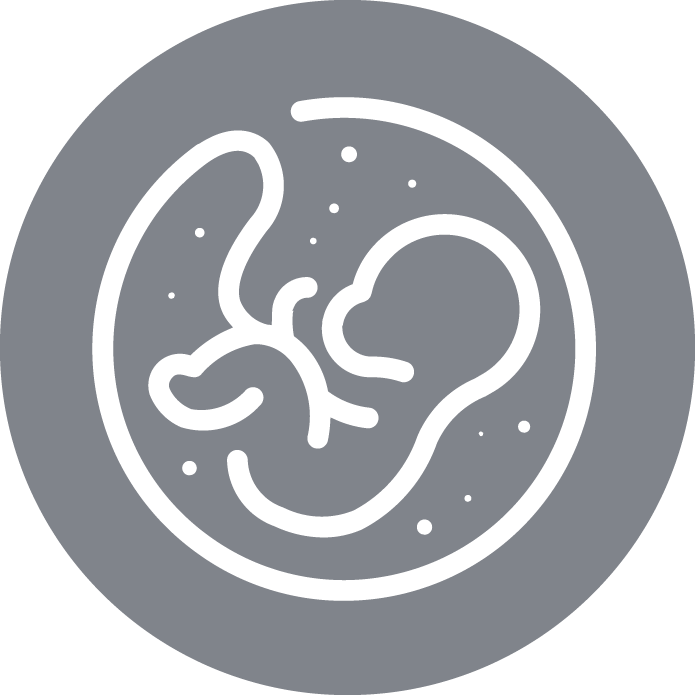Psychology of Assisted Reproduction
At IVI we are pioneers in Spain in the integration of the figure of the psychologist in the multidisciplinary team that attends of assisted reproduction patients. All our clinics have a Psychology Unit that offers help at key moments in the treatment. With more than 15 years of experience, we have come to protocol the psychological support to the reproduction patient, always adjusting to the needs of each patient.
The infertility situation has a strong emotional impact. From the start, feelings of guilt, grief, anger and loss of self-esteem may appear that make it difficult to adapt to the situation. The actual reproduction treatment, the hormonal changes associated with it and the fear of failure mean this experience involves a high level of stress. Men and women experience the situation differently, which often leads to differences in the couple.
 When a woman or a couple decides to start assisted reproduction treatments, they enter a complex and unknown world. What at first seemed like the solution to the situation could be the start of a long journey. Often, the patient feels lost. To provide good psychological support it is necessary to have broad knowledge of all available techniques and of the whole range of treatment options that science can offer the patient. In addition, from a strictly experiential point of view, patients often face complex decisions and/or situations that had never been raised before and that generate high levels of discomfort: the donation of gametes and/or embryos, advanced pregnancy losses, successive failures of treatments… These are just some examples. On the other hand, assisted reproduction techniques have made the appearance of new family models possible.
When a woman or a couple decides to start assisted reproduction treatments, they enter a complex and unknown world. What at first seemed like the solution to the situation could be the start of a long journey. Often, the patient feels lost. To provide good psychological support it is necessary to have broad knowledge of all available techniques and of the whole range of treatment options that science can offer the patient. In addition, from a strictly experiential point of view, patients often face complex decisions and/or situations that had never been raised before and that generate high levels of discomfort: the donation of gametes and/or embryos, advanced pregnancy losses, successive failures of treatments… These are just some examples. On the other hand, assisted reproduction techniques have made the appearance of new family models possible.
 IVI understands part of its Mission to be to share its knowledge with other professionals who are interested in this discipline. Since 2013 IVI has a specific master’s degree in Psychology (Master’s degree in Infertility: Psychosocial, medical and legal aspects) in which professionals from the different areas of reproduction participate and in which full training is offered in approaching the patient undergoing Reproduction treatment and the way of integrating the psychologist in the multidisciplinary team.
For IVIRMA Global Education, it is a pleasure to use this opportunity to invite anyone who is interested in the Psychology of Assisted Reproduction to do this master’s degree or any of the Psychology courses to specialize in this discipline. Likewise, we invite you to follow our blog and share with us your professional experience in this exciting world of Psychology of Assisted Reproduction.
IVI understands part of its Mission to be to share its knowledge with other professionals who are interested in this discipline. Since 2013 IVI has a specific master’s degree in Psychology (Master’s degree in Infertility: Psychosocial, medical and legal aspects) in which professionals from the different areas of reproduction participate and in which full training is offered in approaching the patient undergoing Reproduction treatment and the way of integrating the psychologist in the multidisciplinary team.
For IVIRMA Global Education, it is a pleasure to use this opportunity to invite anyone who is interested in the Psychology of Assisted Reproduction to do this master’s degree or any of the Psychology courses to specialize in this discipline. Likewise, we invite you to follow our blog and share with us your professional experience in this exciting world of Psychology of Assisted Reproduction.
22% of patients who undergo assisted reproduction treatments report anxiety throughout the treatment and 10% report depressive symptomatology.
The different societies for assisted reproduction, both at European and American levels, have psychology working groups that set the standards of what psychological support should be for reproductive patients. There are two types of support or counselling: “Patient-oriented counselling” (which ensures the integration of information received, psychoeducation and emotional support) and “Therapeutic counselling” or psychological intervention per se.
 When a woman or a couple decides to start assisted reproduction treatments, they enter a complex and unknown world. What at first seemed like the solution to the situation could be the start of a long journey. Often, the patient feels lost. To provide good psychological support it is necessary to have broad knowledge of all available techniques and of the whole range of treatment options that science can offer the patient. In addition, from a strictly experiential point of view, patients often face complex decisions and/or situations that had never been raised before and that generate high levels of discomfort: the donation of gametes and/or embryos, advanced pregnancy losses, successive failures of treatments… These are just some examples. On the other hand, assisted reproduction techniques have made the appearance of new family models possible.
When a woman or a couple decides to start assisted reproduction treatments, they enter a complex and unknown world. What at first seemed like the solution to the situation could be the start of a long journey. Often, the patient feels lost. To provide good psychological support it is necessary to have broad knowledge of all available techniques and of the whole range of treatment options that science can offer the patient. In addition, from a strictly experiential point of view, patients often face complex decisions and/or situations that had never been raised before and that generate high levels of discomfort: the donation of gametes and/or embryos, advanced pregnancy losses, successive failures of treatments… These are just some examples. On the other hand, assisted reproduction techniques have made the appearance of new family models possible.
Advising and accompanying these patients in this new form of motherhood is also a challenge for psychologists specializing in assisted reproduction.
The basic objective of any counselling and psychological support (be it patient-focused or professional) is to ensure that patients understand the implications of their treatment options, receive sufficient emotional support and can cope healthily with the consequences of the infertility experience. In short, providing the path to their parenthood.
 IVI understands part of its Mission to be to share its knowledge with other professionals who are interested in this discipline. Since 2013 IVI has a specific master’s degree in Psychology (Master’s degree in Infertility: Psychosocial, medical and legal aspects) in which professionals from the different areas of reproduction participate and in which full training is offered in approaching the patient undergoing Reproduction treatment and the way of integrating the psychologist in the multidisciplinary team.
For IVIRMA Global Education, it is a pleasure to use this opportunity to invite anyone who is interested in the Psychology of Assisted Reproduction to do this master’s degree or any of the Psychology courses to specialize in this discipline. Likewise, we invite you to follow our blog and share with us your professional experience in this exciting world of Psychology of Assisted Reproduction.
IVI understands part of its Mission to be to share its knowledge with other professionals who are interested in this discipline. Since 2013 IVI has a specific master’s degree in Psychology (Master’s degree in Infertility: Psychosocial, medical and legal aspects) in which professionals from the different areas of reproduction participate and in which full training is offered in approaching the patient undergoing Reproduction treatment and the way of integrating the psychologist in the multidisciplinary team.
For IVIRMA Global Education, it is a pleasure to use this opportunity to invite anyone who is interested in the Psychology of Assisted Reproduction to do this master’s degree or any of the Psychology courses to specialize in this discipline. Likewise, we invite you to follow our blog and share with us your professional experience in this exciting world of Psychology of Assisted Reproduction. Do you want more information?



